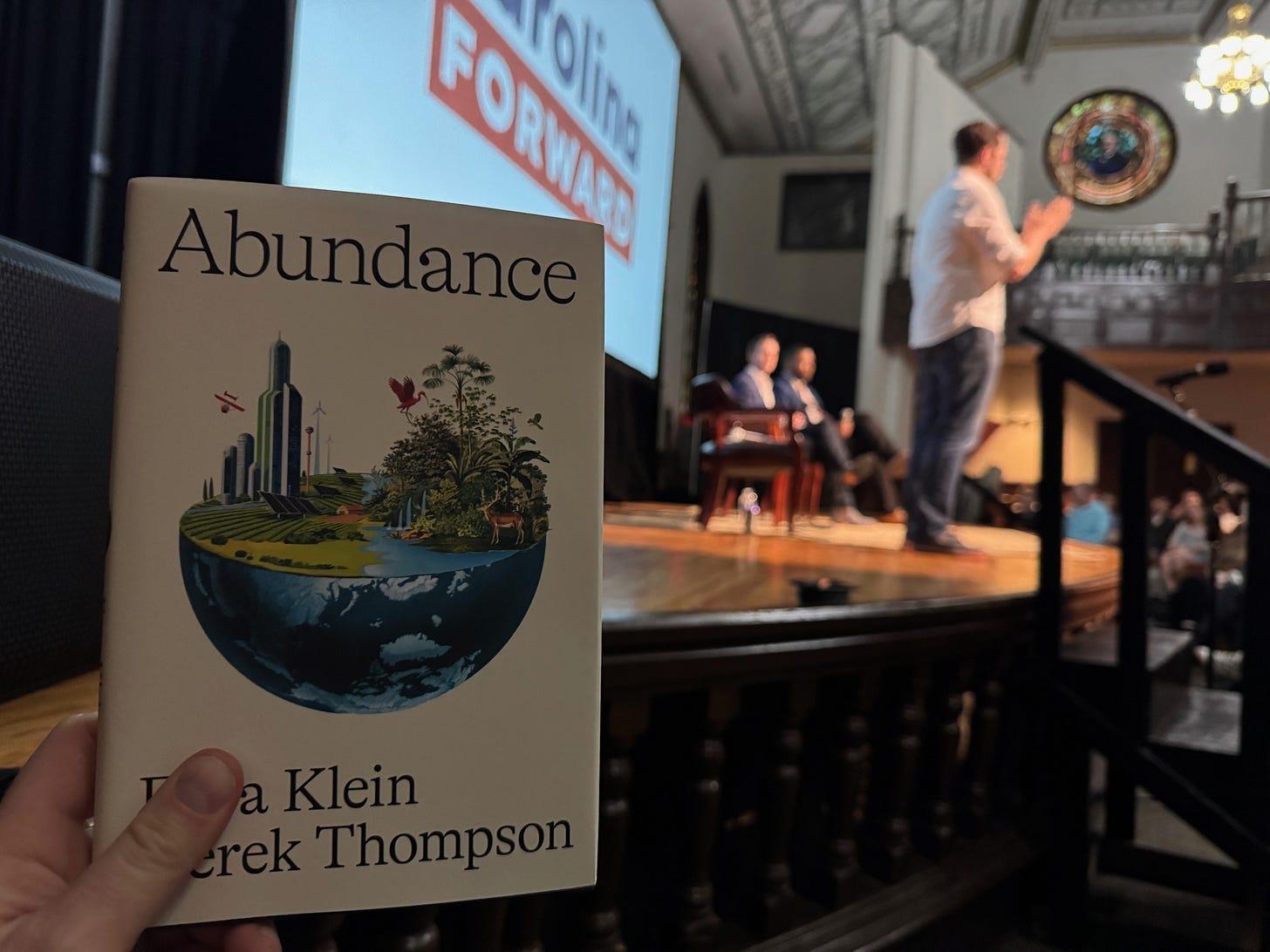Densification is Climate Justice
VERBATIM | Alongside Mayor Leo Williams and Mayor Janet Cowell, Abundance author Derek Thompson calls out anti-housing environmentalism and makes the case for building as the path to a livable planet.
VERBATIM is a series that republishes the words of local leaders supporting better cities.
The following was an exchange between Abundance Author and Chapel Hill resident Derek Thompson and an audience member at an event on April 10th produced by Carolina Forward in Durham. The exchange is republished in full.



